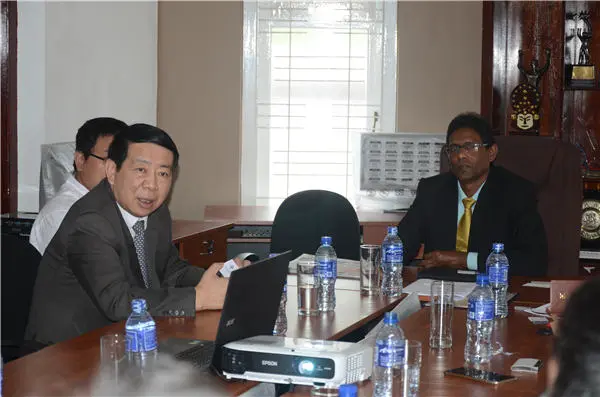Trade ministers and chief negotiators of the participating countries in the Trans-Pacific Partnership (TPP) talks gathered in Singapore on Monday for another round of talks, while observers said they do not expect the talks to conclude any time in the near term.
The two-day meeting behind closed doors is led by the United States and gathers the representatives of 12 countries that also include Australia, Brunei Darussalam, Canada, Chile, Japan, Malaysia, Mexico, New Zealand, Peru, Vietnam and Singapore.
Prior to the meeting, chief negotiators and subject matter experts have met in Vietnam from May 11-17, Singapore's Ministry of Trade and Industry said in a statement.
The last ministerial meeting of the TPP talks took place in February. The ministry said that the ministers "agreed on the majority of the landing zones identified at the meeting in December."
The United States had pushed for the conclusion of the talks by the end of last year on the TPP, a comprehensive and demanding but controversial trading pact that covers not only free trade but also aspects such as stringent intellectual property rights, the rights of multinationals to sue national governments and what the United States view as unfair competitive advantage of state-owned enterprises. Some of the observers have said that the TPP talks are more on fair trade than on free trade.
Differences obviously remain between the participating countries on some of the issues. Akira Amari, a Japanese minister in charge of the negotiations, said on Friday that it was unclear to what extent Tokyo and Washington can narrow differences over thorny issues such as Japanese tariffs on key agricultural products.
Nevertheless, he also suggested that progress had been made at the meeting of chief negotiators last week in Vietnam and that " countries narrowed gaps on each agenda item."
Japanese Prime Minister Shinzo Abe had told his ministers that the Singapore meeting will be "extremely important" for the early conclusion of a TPP deal.
Some of the observers said that they expected the talks to drag on for months before it is anywhere near a conclusion.
The TPP is one of the free trade talks in the Asia Pacific, alongside other free trade efforts including the Regional Comprehensive Economic Partnership involving the Association of Southeast Asian Nations and their trade partners. Countries including Singapore have called for the talks to be complementary in furthering free trade in the region.
Sarah Tong, research fellow at the East Asian Institute, National University of Singapore, said that the TPP talks are a process of setting high targets first and then adjusting them -- most of the time lowering them -- to cater to the conditions and interests of the participating countries.
"We still cannot say for sure what the resultant pact would be like. It would most probably be not that high-standard," she said.
 简体中文
简体中文

